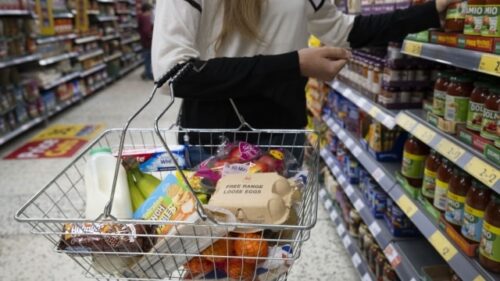
UK inflation increased unexpectedly to 10.4 per cent in February, marking the first time inflation has increased in the past four months, according to the Office for National Statistics.
The increase in the rate of inflation came as a surprise to most economists, who were predicting that the figure would fall to 9.9 per cent in February.
Data released on Wednesday morning showed the consumer price index (CPI) rose by 10.4 per cent in the 12 months up to February 2023, meaning goods were 10.4 per cent more expensive than they were a year ago.
This is higher than the 10.1 per cent CPI figure for January 2023 and demonstrates that the country is still firmly in the grips of a cost of living crisis, with the rate of inflation still close to a 40-year high.
Inflation began increasingly steadily in the UK during the spring of 2021 after remaining below 1 per cent throughout the pandemic.
It peaked at 11.1 in October 2022, driven in large part by rising energy bills and the knock-on effect on other household costs, and has decreased slightly each month since, until now.
According the the ONS, the biggest factors driving up the rate of inflation in February 2023 were food, restaurants and cafés, and clothing.
Chief Economist at the ONS, Grant Fitzner, said: “Inflation ticked up in February, mainly driven by rising alcohol prices in pubs and restaurants following discounting in January.
“Food and non-alcoholic drink prices rose to their highest rate in over 45 years with particular increases for some salad and vegetable items as high energy costs and bad weather across Europe led to shortages and rationing.
“These were partially offset by falls in the cost of motor fuel, where the annual inflation rate has eased for seven consecutive months.”
Overall, the cost of dining in restaurants and cafes increased by 11.4 per cent in the year up to February 2023, while the cost of food and non-alcoholic beverages increased by 18.2 in the same period.
Prices for clothing and footwear also rose by 8 per cent in the year up to February 2023.
Will inflation continue to rise?
Economists have been hopeful that inflation is showing signs of easing in the UK, with many predicting that the CPI measure was set to fall below double figures for the first time since last August.
While February’s figure was higher than expected, economist still believe the country is on track to reduce inflation throughout the year ahead.
Alpesh Paleja, the CBI’s lead economist, said that “while inflation rose in February, the outlook for the months ahead is looking more benign”.
“But while we expect inflation to fall back over this year, the firmness in domestic price pressures is something that the Bank of England will be keeping a close eye on.
“And despite further falls over the coming months, this year will still be a high-inflation environment for both households and businesses.”
As part of its economic forecast released alongside the Budget last week, the Office for Budget Responsibility predicted that inflation is on track to fall to 2.9 per cent by the end of this year, helped largely by falling wholesale energy prices.
Responding to the latest figures, Chancellor Jeremy Hunt said: “Falling inflation isn’t inevitable, so we need to stick to our plan to halve it this year.”
By: lucie Heath










